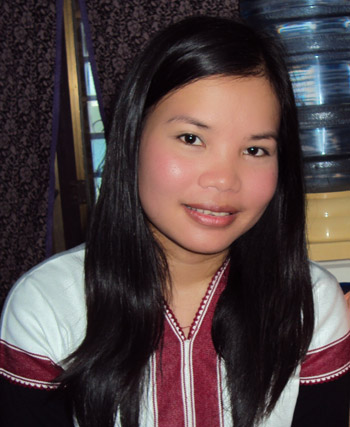I don’t think many people in the west have any real understanding of what it is like to be driven out of your country, to have to flee for your life, leaving your possessions, friends, everything you know behind you, and never knowing if or when you will ever being able to go back.
As if that horrible experience isn’t enough, there are then the challenges of how to survive in a strange new country, where you are not really wanted.
 When aged 14 years, I fled Burmese Army attacks, and ended up in a refugee camp in Thailand, at first I was grateful for a safe place to be. But it wasn’t safe for long, as the Thai Army allowed the soldiers from the dictatorship to cross the border and attack the refugee camps. Then the Thai government made us fence ourselves in with barbed wire, and banned us from leaving the camps. This was no real sanctuary. Eventually we felt safer from attack, but we were not free, we felt like prisoners, and very unwelcome.
When aged 14 years, I fled Burmese Army attacks, and ended up in a refugee camp in Thailand, at first I was grateful for a safe place to be. But it wasn’t safe for long, as the Thai Army allowed the soldiers from the dictatorship to cross the border and attack the refugee camps. Then the Thai government made us fence ourselves in with barbed wire, and banned us from leaving the camps. This was no real sanctuary. Eventually we felt safer from attack, but we were not free, we felt like prisoners, and very unwelcome.
However, if they had not let us across the border then many thousands of us would have been killed, many women raped. But I am also angry at how we are treated, and how the Thai government is threatening to send refugees back to Burma.
I am grateful for the help the United Nations gave to us in those camps. The UNHCR registered refugees, providing us with some protection. In addition, UN agencies in Burma have provided life saving aid to millions of people. But I am angry with the United Nations as well. While I appreciate the UN resettlement programme has given more than 60,000 refugees opportunities for their children to get educations and a better life than in the camps, I don’t believe it is a durable solution to the refugee crisis. A durable solution would be for the UN to work to stop the attacks against my people which forced them to flee for their lives. A durable solution would be for us to be able to go back home. Having Karen and other ethnic refugees sent thousands of miles from Burma is not a durable solution.
The United Nations largely ignores attacks against ethnic people in Burma. The conflict in my country has been described as the world’s longest running civil war. Why isn’t Ban Ki-moon working for a ceasefire? Why doesn’t he ever talk about Karen and other ethnic women being gang-raped by Burmese Army soldiers, or about the 3,600 villages in eastern Burma which have been destroyed by the Burmese Army in the past 16 years? If there is ever to be peace in my country the UN has said that the ethnic political parties with armed wings will have to be part of the dialogue process. But UN Envoys on Burma go back and forth to Burma without meeting the leaders of these parties. They exclude them from the dialogue process.
I am grateful to the European Union for its official support for democracy in Burma, and for being one of the biggest donors to the refugee camps in Thailand. But at the same time the European Union has a shameful record on Burma. Internal divisions within the EU have meant that the EU has failed to turn words into action. Most sanctions are weak, and don’t even target the gas sector, the biggest single source of revenue for the dictatorship. The EU has failed to endorse the recommendation of the UN Special Rapporteur on Burma, that there be a UN Inquiry into war crimes and crimes against humanity in Burma. This is seen by the dictatorship as EU acceptance that they can continue to get away with burning our villages, raping our women, and using us as slave labour.
The EU is also cutting funding for refugees in Thailand, despite the fact that there are just as many refugees after the resettlement programme as there were before. This is because the attacks by the Burmese Army have continued. In the past decade the EU has only made one official statement about Burmese Army attacks against civilians in Karen State.
The EU also refuses to fund cross-border aid. Cross-border aid is where local people cross from Burma into neighbouring countries to collect aid and bring it back to their community. It is essential because the dictatorship blocks aid to large parts of Burma where ethnic people live. By refusing to fund cross-border aid, in effect the EU is allowing the dictatorship to decide that some people can’t get EU aid because they are ethnic Karen, Karenni, Shan or other ethnic group.
When I meet UN officials, EU officials, and other officials, they usually seem to expect me to thank them for what they are doing. And I do. I am genuinely grateful. But at the same time, their failure to act where they could is costing the lives of my people, and I am so, so, angry about that.
Zoya Phan is Campaigns Manager at Burma Campaign UK, and co-founder and Director of the Phan Foundation. Her autobiography is published as ‘Undaunted’ in the USA, and ‘Little Daughter’ in the rest of the world.


